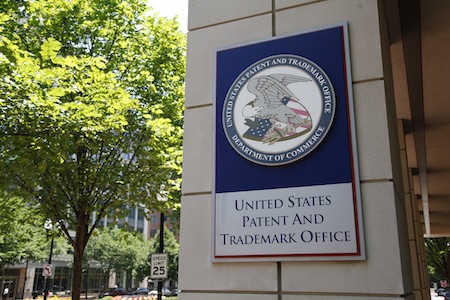Vidal Attempts to Clear up PTAB Confusion Over ‘Compelling Merits’ Memo
“Although I now recognize that this instruction could be read to allow for a compelling merits determination as a substitute for a Fintiv analysis, that was not my intent.” – Director Vidal
U.S. Patent and Trademark Office (USPTO) Director Kathi Vidal yesterday issued a precedential Director Review decision clarifying that her June 2022 “compelling merits” memo was not meant to replace the Patent Trial and Appeal Board’s (PTAB’s) analysis under Apple Inc. v. Fintiv, Inc.
In IPR2022-01242, the PTAB instituted inter partes review (IPR) without exercising its discretion under 35 U.S.C. § 314(a), citing Vidal’s “Interim Procedure for Discretionary Denials in AIA Post-Grant Proceedings with Parallel District Court Litigation.” In that memo, Vidal said that the PTAB “will not deny institution of an IPR or PGR under Fintiv (i) when a petition presents compelling evidence of unpatentability; (ii) when a request for denial under Fintiv is based on a parallel ITC proceeding; or (iii) where a petitioner stipulates not to pursue in a parallel district court proceeding the same grounds as in the petition or any grounds that could have reasonably been raised in the petition.”
Consequently, the PTAB in the present case declined to exercise its discretion to deny institution, explaining that the petitioner presented compelling unpatentability challenges. But Vidal sua sponte instituted Director Review to underscore that the compelling merits standard articulated in the memo is a higher standard than the one set for institution by statute and that the Board must provide its reasoning in determining that the merits are compelling. Vidal explained:
“The compelling merits test seeks to strike a balance among the competing concerns of avoiding potentially conflicting outcomes, avoiding wasteful parallel proceedings, protecting against patent owner harassment, and strengthening the patent system by allowing the review of patents challenged with a sufficiently strong initial merits showing of unpatentability. The patent system and the public benefit from instituting challenges where there is a showing of unpatentability by compelling merits, but it is only a finding under this higher standard that would compel the Board to review claims for the public benefit when other considerations
favor discretionary denial.”
Vidal accepted some responsibility for the Board’s confusion, explaining that “[a]lthough I now recognize that this instruction could be read to allow for a compelling merits determination as a substitute for a Fintiv analysis, that was not my intent.” Instead, said Vidal, the Board must first determine if Fintiv factors 1-5 favor discretionary denial before considering the compelling merits standard. If the Board determines that factors 1-5 favor discretionary denial, the compelling merits analysis then kicks in, and if the IPR is instituted on that ground, “the Board must provide reasoning sufficient to allow the parties to challenge that finding and sufficient to allow for review of the Board’s decision.”
In this case, the PTAB did not provide sufficient reasoning for its finding, pointing only to its analysis under the lower Section 314 institution standard, Vidal noted. She therefore vacated the Board’s decision, remanded for consideration of the Fintiv factors 1-5, and instructed the Board to provide its reasoning should it reach the compelling merits analysis again. Vidal did not express an opinion as to whether the record supported a compelling merits analysis.
Eileen McDermott
Eileen McDermott is the Editor-in-Chief of IPWatchdog.com. Eileen is a veteran IP and legal journalist, and no stranger to the intellectual property world, having held editorial and managerial positions at […see more]







